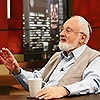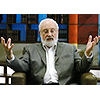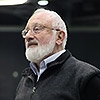Audio Version Of The Blog – 8/21/20
Listen to an Audio Version of the Blog
Download:MP3 Audio

Listen to an Audio Version of the Blog
Download:MP3 Audio

The Times of Israel published my new article “A Peace Treaty Is Great, Now We Need Peace”
40 years after the peace treaty with Egypt, and 26 years after the peace treaty with Jordan, Israel signed another peace treaty with an Arab country: the United Arab Emirates (UAE). Unlike the former two treaties, this treaty seems poised to create a warm relationship with a country that is ready and willing to conduct full and warm diplomatic and trade relationships, with embassies, investments in technology, and tourism. And in the absence of territorial and refugee related disputes, the road to successful implementation of the agreement seems smoothly paved.
But for all the merits of a peace treaty, there is a big difference between peace and a peace treaty. A peace treaty will last just as long as the parties have an interest in keeping it. It relies on narrow calculations, enough of which have piled up between countries to sign an agreement that will benefit those interests. But when the interests no longer hold, nothing will maintain the peace.
The Hebrew word for “peace” is shalom, from the word shlemut (wholeness). This is interesting because wholeness does not imply lack of hate, but rather inclusion of hate under the governance of love. We can think of it this way: We cannot even want to unite with someone before we feel the pain of separation from that person. Likewise, in order to build love with someone, we need to want it, and we cannot come to want it unless we first feel that we hate that person and want to get rid of the hatred and turn it into love.
When a positive feeling first awakens toward someone, it is still not love; it is enchantment. By nature, enchantment is intense yet momentary. If we want to keep feeling love after the enchantment is gone, we have to work on it and rise above the disenchantment and other negative feelings that surface in us toward the previously admired person. If we succeed, this will be the beginning of love. From here on, the evolution or devolution of the love will depend on our willingness to transcend recurrent spells of hatred and rejection by building love that is stronger than the manifested hatred.
It turns out that the intensity of the love depends on the intensity of the hatred that precedes it. When you have reached a state where the hatred between you has exposed itself to the fullest and you still managed to cover it with love, then you have achieved a state of shlemut, namely wholeness, peace. You felt the most intense hatred yet you chose love over it. From here on, nothing can divide between the loved ones; they have attained shalom, peace.
And what is true for people is equally true for nations. The peace treaty with the UAE has no reason to fail. As said earlier, we have common economic interests and no reasons for disagreements. But to achieve true, solid, and lasting peace in the Middle East, the neighboring nations will have to rise above tremendous amounts of hatred.
I know that in the end, peace will win. All of creation is moving toward increasing unity, so eventually all nations will have to transcend their belligerence and choose peace. The only question is how many innocent people will have to suffer until that happens.
People think that making peace requires making concessions. I don’t think so. If you make concessions, you will forever wait your turn to take over everything. But peace, as we just said, means wholeness, and wholeness means that each person must feel fully satisfied. This is possible only if all the people feel that they are sharing a common goal that is greater than either their individual ambitions: the goal of unity.
While each person remains in his or her religion or faith, people will want to unite above these differences. And just as greater hatred forms the basis of greater love between people, greater division forms the basis for greater unity among nations. When nations make wholeness their utmost goal, they learn to value both their individual perspectives and the ability to unite with other perspectives to create a common whole. Then, and only then there will be peace. And when that happens, the strongest connection will be with those who are currently the worst enemy.
[269556]
 Michael Laitman, On Quora: “What are the key lessons from this pandemic?“
Michael Laitman, On Quora: “What are the key lessons from this pandemic?“
One key lesson is that the pandemic is only an initial blow from nature, and we can expect many more blows in more severe forms because the time has come for us to undergo a major transformation: a shift in our entire approach to life, from a competitive self-centered approach to one where we share mutual responsibility and consideration for each other and nature.
The pandemic-charged changes we already see in society, from social distancing conditions through to increased unemployment and falling businesses, hint at how this change of our approach to life will have to transpire.
Especially in the realm of work, we have built a society filled with businesses and professions that we have no real need for.
Through the pandemic, nature started filtering out the nonessential from the essential. Businesses that served our basic needs continued serving us, while those we had no real need for became sidelined.
If we look at the animal sphere, we see how a certain amount of animals die off, and others develop in their place, according to various changes that appear in nature.
It is similar with us.
We are parts of nature, and nature operates on us by placing us in new conditions. Accordingly, nature adjusts the human population and the emphasis of its activity.
Under the coronavirus’ influence, many people have become unemployed, and it is because there is a prominent declining need for much of the professions we once held.
We can expect businesses and professions that we have a real need for to continue, which is only about five percent of the service sector that has developed over the last 70 years or so.
Likewise, we will see that around 95 percent of what we engaged in will gradually disappear. People will feel that the materialistic values we held, which drove us to strive for expensive clothing, prestigious cars, and traveling incessantly around the world, will decline, and we will feel needs for more basic and simple fulfillments, together with more meaningful social connections.
Therefore, society and authorities alike will need to think hard about what to do with the growing unemployed mass around the world.
It is on this point that I have proposed a setup where people will have their basic needs provided by authorities in exchange for participating in learning and activities that aim to increase the sensation of meaningful connection in society.
On one hand, we won’t be able to revive our pre-coronavirus economy and lifestyle, and on the other hand, if we simply fulfill people’s basic needs without offering social accolades and goals worth striving for, then society will stagnate.
Therefore, by supplying life’s essentials in exchange for participation in learning and activities that aim to improve social connections, we will see a major shift in values—from egoistic to altruistic, individualistic to mutually dependent, and materialistic to people-focused—which will make this transition appear advantageous to everyone.
Moreover, by prioritizing positive social connections above all other engagements, we will also come closer into balance with nature’s interdependent and interconnected form, and will thus experience positive feedback from nature: elated harmonious sensations the likes of which we have yet to experience.
 Change Your Attitude Toward Life
Change Your Attitude Toward Life
Question: Modern medicine does not cure, but prolongs the ability to lead a wrong lifestyle. Classically, people believe the state should take care of them. A person pays taxes, so he wants to receive reciprocal care from medicine. Is this approach correct from your point of view?
Answer: No, this is wrong. Our life, medicine, and the state are built on a very false basis of ignorance of who we are and in what volume of nature we are. Therefore, our attitude to nature, society, and man is wrong. Not to mention medicine, science, and everything else that we do. This must be radically changed.
We need to change the basis of our attitude to life. After all, it is selfish, distorted, and we do nothing about it. And a person needs to be corrected. Then his attitude toward himself, toward the world, toward life will become different. He will make society and himself different.
A person will work where needed and how much is needed, nothing more. He will relate to nature only to the extent that he can take what he needs for existence, without robbing and destroying the environment. Thus, he will live in a huge, good, kind volume of nature, and will not pour oil into the ocean and burn forests. All of this must change quickly. Otherwise, we will not have this earth.
Question: Is your approach complex and not point-by-point?
Answer: An integrated approach boils down to human education.
[269077]
From KabTV’s “The Post-Coronavirus Era” 5/14/20
Related Material:
Health And Medicine, Part 2
Health And Medicine, Part 1
A Healthy Body Reflects A Balanced Soul
 Question: Can we say that love is a feeling that is a consequence of the right relationships between people?
Question: Can we say that love is a feeling that is a consequence of the right relationships between people?
Answer: I would describe it differently. To love means to feel other people and try to do everything to fulfill their desires.
Question: Do you think that this is the basic law of human society and that we must reveal it in the same way we revealed all physical laws?
Answer: We must not only reveal it, but also constantly implement it. This law should become our credo in life.
Question: And then all the other laws of ethics and countries will also exist, but will take different forms?
Answer: Naturally. They will all proceed from this law: the constant rapprochement of all parts of creation with each other, the constant rise above egoism, and the approach to an absolute, perfect state.
[268839]
From KabTV’s “Management Skills” 5/7/20
Related Material:
Love Without Conditions
Antibodies Against Egoism
Get To Know Yourself
 Question: Personal growth is a process of human development, which includes self-realization and growth practically in all spheres of human activity. Psychologist Abraham Maslow built all human needs in the form of a pyramid. At the bottom of the pyramid are physiological needs: warmth, hunger, thirst-quenching. Then came the need for security. Further, social needs, which he also divides into belongingness, affection, caring for the family, esteem, self-respect, and respect for others. The highest are spiritual needs: self-actualization and self-realization.
Question: Personal growth is a process of human development, which includes self-realization and growth practically in all spheres of human activity. Psychologist Abraham Maslow built all human needs in the form of a pyramid. At the bottom of the pyramid are physiological needs: warmth, hunger, thirst-quenching. Then came the need for security. Further, social needs, which he also divides into belongingness, affection, caring for the family, esteem, self-respect, and respect for others. The highest are spiritual needs: self-actualization and self-realization.
What is behind the desire of a person for self-realization?
Answer: Self-realization is the most powerful desire of a person to reach the embodiment of his “I.” Practically, it is the desire to be God, depending on how one imagines it.
But if one does not realize himself in this way, it means that the spark of being human is lacking in him. After all, Adam is from the word Edome, Domeh—similar to God. Therefore, when a person wants to realize himself, he feels that he is creating a Creator from himself. It turns out that self-realization is the desire to know the Creator. Since the Creator and nature are identical concepts, this is the desire to know the entire creation.
Question: How does it differ from common knowledge? After all, there is a desire for knowledge in Maslow’s pyramid.
Answer: No, we are not talking about just knowledge, as for example in physics. It is the desire to dominate over nature, over everyone. At least in something I have to be special, something that others do not have and is only in me.
Today, practically everyone wants to be a master of nature. We see how we try to tame nature, to be above it.
Question: Can self-realization be at every stage of the pyramid? Let’s say I want to realize myself in business. Not even for money’s sake. I simply have a desire to manage, build a business.
Answer: Yes, on every stage. Therefore, a person must be taught how to correctly understand this realization, how to develop oneself, how to compare oneself with others. He must be in a certain struggle, in competition with others. Otherwise, there will be no progress.
[269039]
From KabTV’s “Management Skills,” 6/25/20
Related Material:
Don’t Avoid Your True Self-Fulfillment
How Do You Find Your Destiny?
Getting To Know Ourselves
Lesson Preparation
| [media 1] | [media 2] |
Writings of Baal HaSulam, “The Arvut (Mutual Guarantee)”
| [media 3] | [media 4] |
Selected Highlights
| [media 5] | [media 6] |